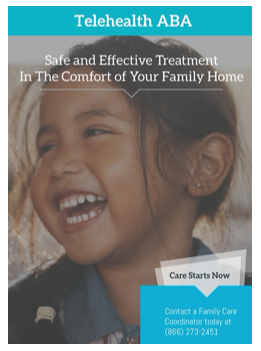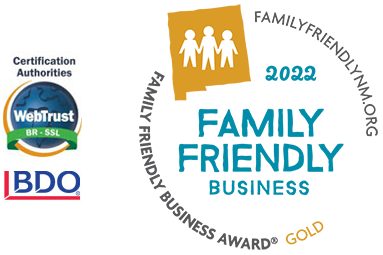Access Safe and Effective Treatment In The Comfort Of Your Family Home
Behavior Change Institute specializes in creating access to medically necessary ABA treatment for families in rural and traditionally underserved communities. We integrate state of the art telehealth technology to accommodate families with ease. We offer a variety of options for telehealth care and all options are extremely customizable to meet the unique needs of every individual and family!
Health Insurance Coverage
Nearly every major insurance company is now authorizing expanded telehealth coverage, including New Mexico Medicaid. In most cases, telehealthcare is covered the same way in-person care is covered. BCI’s Health Insurance Specialist will work with your health plan to ensure that the services you choose are covered!

Explore our telehealth treatment models below:
Under the partial telehealth model, a direct care provider renders services 1:1 with the patient in their home and the Primary Clinician provides clinical oversight via real-time video conferencing to minimize the number of providers entering patient homes. This model would allow the patient to continue their treatment program at the recommended dosage.
If the patient has the appropriate pre-requisite skills, direct ABA treatment may be appropriate to deliver directly via real-time videoconferencing. This model would allow the patient to continue their treatment program at the recommended dosage. Necessary Prerequisite Skills:
1. Responds to video instruction without assistance
2. Basic vocal imitation skills
3. Basic motor imitation skills
4. Basic joint attention skills
5. Able to follow two-step common directions
6. Able to sit at a computer for up to 5-10 minutes
7. Basic visual-visual and auditory-visual discrimination skills
BCI’s Clinicians are trained to evaluate patient eligibility and family readiness for this treatment model.
Caregiver-implemented treatment may be appropriate if the child or another family member in the household is immunocompromised. This model allows caregivers to be coached to implement treatment programs (or modified treatment programs) at home with their child. This model would allow the patient to receive a reduced amount of treatment hours while focusing on pivotal skills in a natural environment to prevent regression and maintain learned skills.
Caregivers who are not able to serve as an interventionist may benefit from parent consultation to prevent regression and reduce the likelihood of crisis situations. This is the least intensive model and focuses on antecedent interventions, crisis prevention, and problem-solving individual patient concerns with the caregiver.


